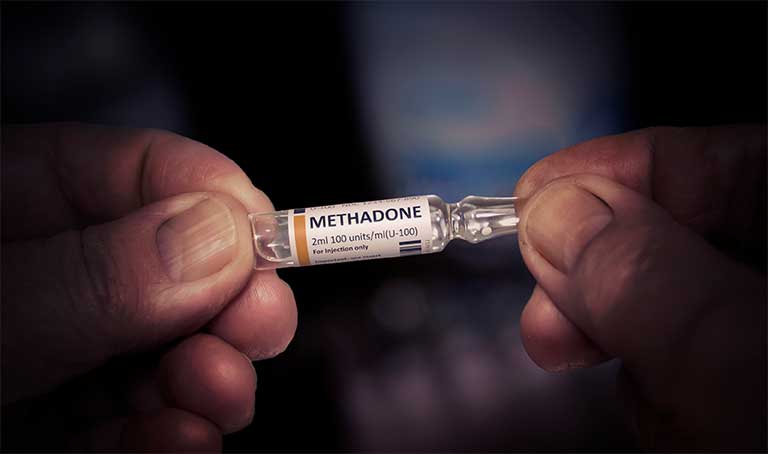Does Insurance Cover The Cost Of Methadone Treatment?
In the midst of Ohio’s opioid epidemic, methadone maintenance treatment and other forms of medication-assisted treatment stand as proven and effective treatment options. However, not all health benefits cover methadone and, if it is covered, your out-of-pocket costs may vary.

Along with a variety of other financial resources that may be available to you, you should know that your health insurance coverage is required by law to provide benefits that extend to addiction treatment programs provided to treat a diagnosed substance use disorder.
However, not all plans cover the cost of methadone treatment specifically, and your in-network options and out-of-pocket costs may vary.
Insurance Plans & Methadone Treatment
Even though your health insurance may cover opioid treatment, you may still not have coverage for certain services like medical detox or methadone/buprenorphine treatment. And your deductible, copay, and out-of-pocket maximum can still vary widely from plan to plan.
Insurance & Substance Abuse Treatment
According to the Department of Health and Human Services (HHS), health insurers and group health plans are required to provide the same level of benefits for mental health and substance use treatment that they do for medical/surgical care.
In addition, the Affordable Care Act (ACA) dictates that insurance companies cannot consider substance use disorder as a pre-existing condition and treatment provided for it cannot be denied.
In other words, your insurance provider must cover addiction treatment services as a general rule.
This includes no matter how long you have struggled with substance abuse and addiction, no matter how long you have had insurance, and no matter whether you have private insurance, employer-subsidized insurance, marketplace insurance, Medicare, Medicaid, or Tricare.
How To Determine If Your Insurance Covers Methadone
Unfortunately, American healthcare and health insurance claims can be complicated, and even those who work inside the medical system on a daily basis can become confused and frustrated when searching for accurate information.
Contact Your Insurance Provider
The best way to figure out if your particular insurance plan covers methadone treatment is to call your insurance company and ask them directly.
You may also want to make sure you will be receiving treatment in-network, referring to those healthcare providers or treatment facilities that participate with your specific insurance plan, resulting in lower costs and faster claims processing.
Contact Your Treatment Center
You can also contact a prospective treatment provider and convey your insurance details, as they will be able to check your coverage details and explain your options in person.
Medication-Assisted Treatment For Opioid Use Disorder
Medication-assisted treatment (MAT) is an evidence-based and highly effective treatment option for opioid use disorder (OUD) and alcohol use disorder (AUD) that combines certain FDA-approved medications with counseling and behavioral therapy.
MAT medications approved to treat OUD include:
- methadone (Methadose, Dolophine)
- buprenorphine (Suboxone, Subutex)
- naltrexone (Vivitrol)
Each of these prescription drugs is considered safe and effective when used as directed and can help those struggling with AUD or OUD to better manage their cravings and withdrawal symptoms or avoid relapse in the months and years after they leave a treatment program.
How The Medications Work
Naltrexone is an opioid antagonist and works by blocking and neutralizing the pleasurable effects of opioids and alcohol (similar to naloxone). Buprenorphine and methadone act as a partial opioid agonist and opioid agonist, respectively.
This means that they activate a person’s opioid receptors over a very long period but with a very low intensity to reduce both cravings and withdrawal symptoms, while also blunting the effects of any other opioid drugs a person may use.
Abuse Potential
Methadone and buprenorphine also differ in their potential for abuse. Whereas buprenorphine is considered lower-risk and is provided in outpatient settings, methadone is distributed through specialized methadone clinics due to its higher potential for misuse.
If you have questions about your insurance and the cost of your treatment, we’re happy to review your plan, connect with your insurance company, and get you clear answers so you can focus on what really matters: your recovery.
- American Journal of Public Health https://www.ncbi.nlm.nih.gov/pmc/articles/PMC5308192/
- Department of Health and Human Services (HHS) https://www.hhs.gov/opioids/treatment/insurance-coverage/index.html
- Substance Abuse and Mental Health Services Administration (SAMHSA) https://www.samhsa.gov/medications-substance-use-disorders

